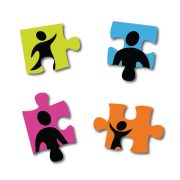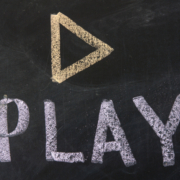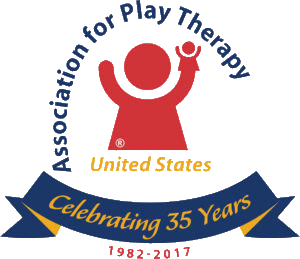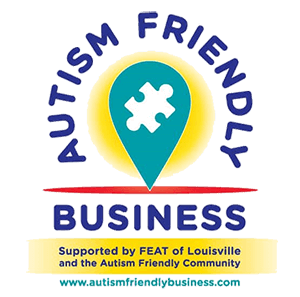The Red Flags of Challenging Childhood Behaviors
Seeing Behaviors as Red Flags

Problematic Behaviors in children are the warning signals to adults that they need support.
When children demonstrate behavioral problems, it’s a signal to the grownups in charge that they need support in some way. Children communicate to adults how they are doing primarily through their behavior. This is due to normal brain development. Because the areas of the brain that are responsible for expression through language (verbally communicating, “I’m not ok.”) are still developing, children show us how they are feeling through their behavior.
Little Red Flags
Sometimes these behaviors are developmentally typical. Toddlers have meltdowns. Tweens lose their cool. Teenagers pull away and demand independence. When typical challenging behaviors of the “growing up process” occur, parents can support their children by providing both nurturing understanding and appropriate boundaries.
At other times, problem behaviors can be a signal to parents that something outside of the norm is happening. When your child experiences this, you can use these moments as an opportunity to pause and reflect about what might be happening, what may be causing these red flags to wave, and what your child may need. Sometimes the solution is easy, such as during moments of exhaustion, overstimulation, and hunger. You can pretty quickly implement some changes to better meet their needs in these departments, which would eliminate the problematic behaviors.
BIG Red Flags
When a child demonstrates a pattern of challenging behaviors that don’t seem to respond to the typical repertoire of parenting strategies, parents may begin to suspect something bigger is happening. This is oftentimes a clue that your child may benefit from some additional support, either from you or possibly a professional Therapist.
Perhaps your child has experienced a recent stressor and is showing you that they’re having a hard time adjusting. Or maybe they’ve experienced a hardship of some kind that you’re unaware of and just need support processing what has happened.
Even more likely is that your child could benefit from some support in developing healthy emotional regulation skills which would allow them to manage their emotions more effectively. After all, developing the abilities to
1. Stop and reflect on how they are feeling,
2. Recognize and differentiate emotions,
3. Communicate verbally how they are feeling, and
4. Regulate emotions in healthy ways
are all different skills that must be learned one at a time.
Any non-typical behavior your child shows you should be cause to stop and pay attention. Their behavior, as challenging as it may be, is telling you they need support.
Let’s say your child has a mouth full of sass, cries at the drop of a hat, and badgers you with questions about your whereabouts. These can be really challenging behaviors to deal with, right?! But upon reflection, you realize there is a correlation of their onset and her starting a new school year. Being in a new environment causes anxiety for both children and adults. The difference is that an adult can recognize how they’re feeling and both communicate it verbally and cope with it appropriately. A child, who has not yet developed those skills and abilities, just shows us by acting out. It’s our job to figure it out and then help them figure it out.
Our Clinical Approach
When parents contact us for support at Creative Family Counseling, a question we get asked a lot is “Do you provide behavioral therapy?” Our answer is both ‘yes’ and ‘no.’ Yes, because we treat behavioral problems in children. No, because we do not take a behavioral treatment approach to therapy with children. In a very simplified description, behavioral treatment approaches typically involve conversations around increasing positive behaviors with rewards and decreasing negative behaviors with consequences. By the time most families reach out to us for support, they have already tried these approaches and it hasn’t worked.
When you have taken away precious items or fun activities from your child to discourage a problematic behavior, and that problem persists, that’s a good clue they really cannot control what is happening. Kids want to be good. Kids want to earn rewards, like keeping their prized possessions and getting to go on fun outings. So when parents take these things away as punishment for a challenging behavior and the child still can’t keep it together, that tells us that either
(A) your child may lack a skill that would help them manage themselves more appropriately, and/or
(B) something is causing the problematic behavior that is outside of their control.
As parents, it’s our job to stop, pay attention to this, and then get them the resources they need to be successful.
Are irritability, distraction, outbursts, and bellyaches suddenly plaguing your little one? Anxiety could be the culprit. If your child is experiencing nervousness, withdrawing from you, has experienced a plummet in grades, and has developed nightmares, they may have experienced a troubling incident that flew under your radar. Does your child seem to hold resentment or have a chip on their shoulder? This could mean something has hurt them that hasn’t yet been addressed. Lastly, perhaps an enduring problem is emerging as your child grows and matures. All of these things are worth the pause, reflection, and offer of support for your kiddo.
How We Can Help
The Therapists at Creative Family Counseling have the tools and training to be able to assess what may be going on in and with your child. It’s our job to get to the root of the problem, the true problem, that is leading to the challenges you are facing with your child. Once that cause (anxiety, anger, pain, interpersonal stress, trauma, etc.) is treated and alleviated, the problematic behavior disappears, and your home is back to being the happy place it was before it emerged.
So the next time your kiddo loses their cool, stop and be curious about it. Pay attention to the signals they’re showing you. Maybe it’s just a bad day, but if you notice a pattern to losing their cool, contact us to get to the bottom of it.














